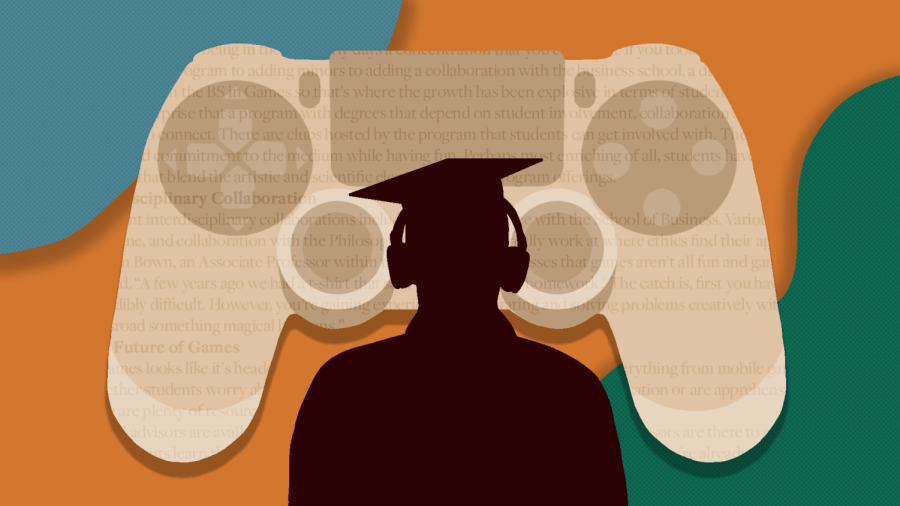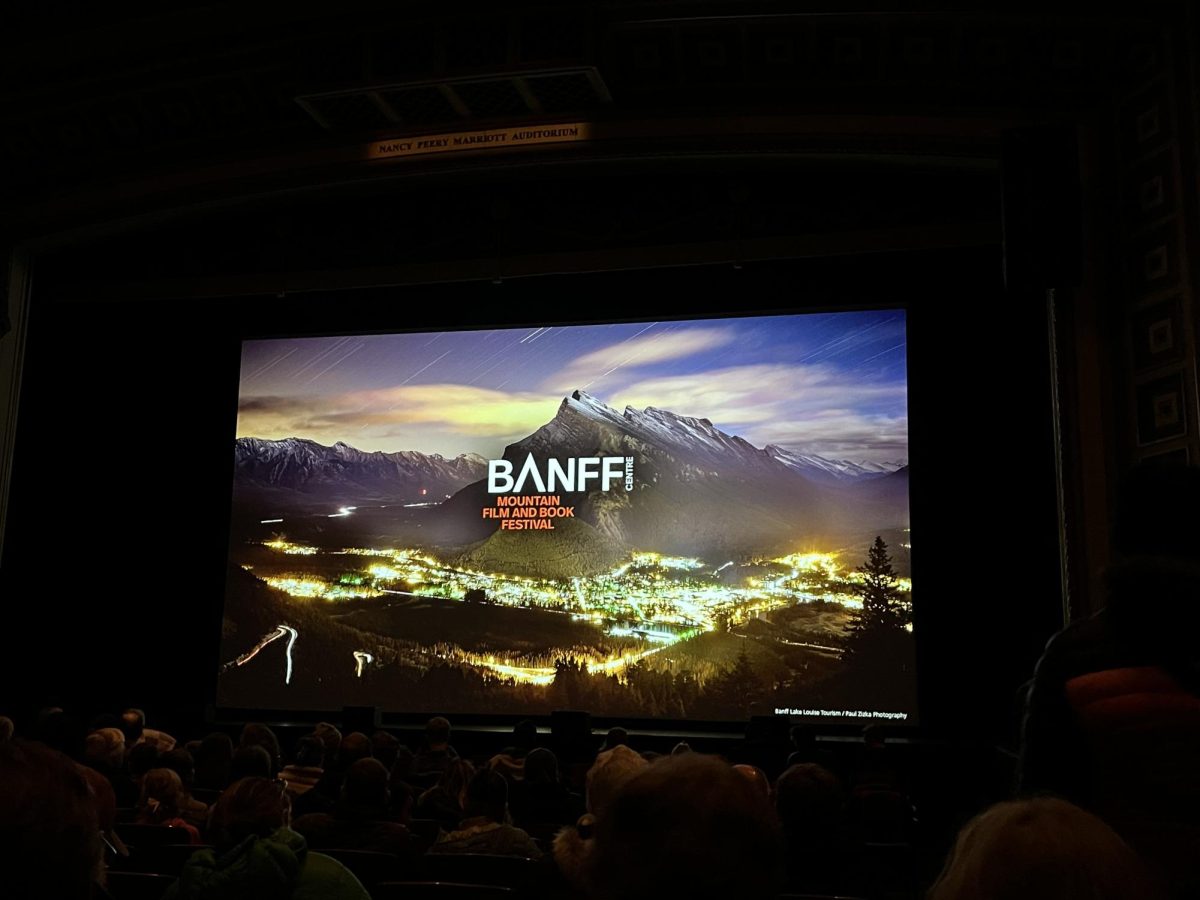Video Games: A Newer, Brighter Future for U Students Across Disciplines
(Design by Madelyn Foulger | The Daily Utah Chronicle)
November 10, 2022
The University of Utah’s Entertainment Arts and Engineering Program has grown to offer over 80 courses since its founding in 2007, said Ryan Bown, an associate professor within the EAE program.
Entertainment Arts and Engineering
José Zagal is a professor in the EAE program whose area of interest is ethics and their association with playing, making and studying games as a discipline.
As a co-professor with C. Thi Nguyen in the philosophy department, Zagal applies a multidisciplinary approach to the study of ethics in games. Courses like these offer opportunities for more students to get involved with studying games regardless of their major.
He attributes the success of the medium to its ability to speak to cultural and societal ideas. Like other forms of media such as art, TV or books, games have taken up space in academia and beyond.
“I think games are a form of expression and, as such, they are cultural objects that speak to societies and also reflect society’s beliefs and ideas,” Zagal said. “The phrase that’s been going around for a couple of years now is that ‘Games are to the 21st century what movies were to the 20th century.’”
Explosive Growth
Part of the EAE program’s growth has included major and minor Bachelor of Science offerings with computer science emphases. What’s really started to propel this growth, however, is student engagement and interest in what the program has to offer.
“We went from being, in the very early days, a concentration that you could take if you took the film degree as an undergrad or the CS degree as an undergrad, to then having our own Master’s program to adding minors, to adding a collaboration with the business school, a dual MBA with an MEAE,” Zagal said. “We have a B.S. in games. As a unit, most of our students are in the B.S. in games, so that’s where the growth has been explosive in terms of students and their interests.”
It’s no surprise that a program with degrees that depend on student involvement, collaboration and feedback would seek to offer various opportunities and modalities for students to connect. There are clubs hosted by the program that students can get involved with, as well as an esports team where students can competitively show their passion for games and commitment to the medium while having fun. Perhaps most enriching of all, students have the opportunity to collaborate across disciplines to create new and exciting projects that blend the artistic and scientific elements of EAE program offerings.
Interdisciplinary Collaboration
Recent interdisciplinary collaborations include the MEAE degree with the School of Business, various apps and design projects with the College of Science and School of Medicine and collaboration with the philosophy department to really work to find where ethics have applications in the field of games.
Bown stressed that games aren’t all fun and games — they require collaboration and a good work ethic to really get off the ground.
“A few years ago, we had a t-shirt that said ‘I play games for homework.’ The catch is, first you have to make the game to play the game,” Bown said. “Making games is incredibly difficult. However, you’re gaining experience collaborating and solving problems creatively with a diverse group of people. It’s blending art and technology and at that crossroad something magical happens.”
The Future of Games
Games looks like it’s headed in the right direction. Both at the U and beyond, everything from mobile games and apps to console gaming has seen an upward trend in recent years. Whether students worry about practical applications of degrees in EAE after graduation or are apprehensive about test-driving a games course to see if it’s the right field for them, there are plenty of resources out there.
EAE advisors are available to answer any questions about getting started and professors are there to guide students through their courses and specific areas of interest.
“We can help students learn this stuff if they’re interested, and generally — most of them are,” Bown said. “They’re already playing games and now they want to learn how to make them. If the desire is there to learn, it makes everything easier, and you’re already in the right place. The University of Utah just happens to be one of the best places to study, create and play games.”









